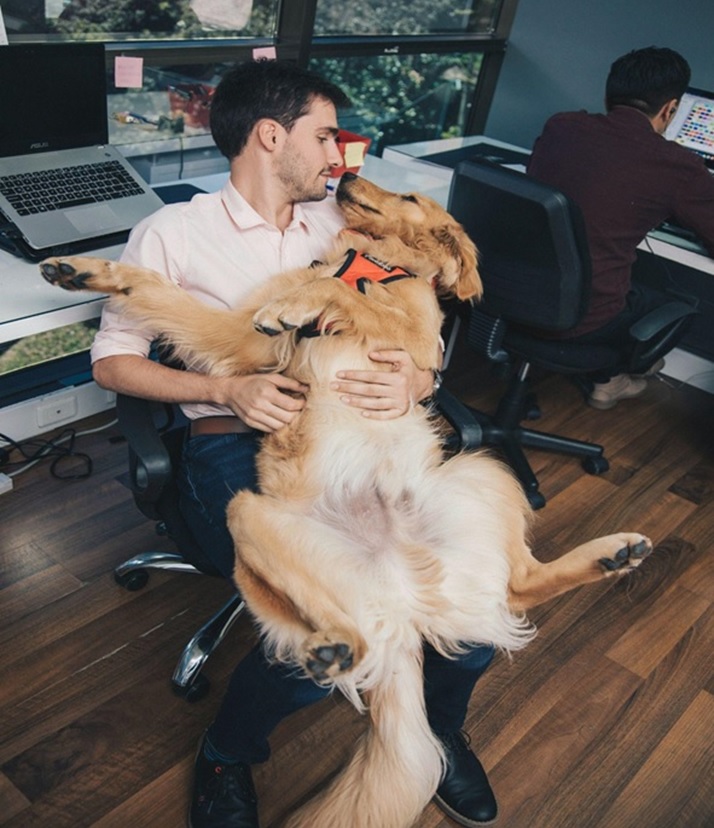Natural Ways to Help Your Dog Sleep

Dogs, much like humans, require a good night’s sleep to function optimally and maintain their overall health. Unfortunately, there can be times when our canine companions struggle to fall asleep or remain asleep. Sleep disturbances can stem from a variety of causes such as anxiety, pain, environmental changes, or other underlying health issues.
Whatever the reason, a restful sleep is essential for your dog’s well-being. Let’s delve into some natural methods to assist your dog in getting the sleep it needs.
Understanding a Dog’s Natural Sleep Cycle
To effectively address and potentially enhance a dog’s sleeping habits, it’s vital to understand their natural sleep cycle. The sleep patterns of dogs are quite distinct from those of humans, and having this insight allows us to cater to their needs better.
Polyphasic Sleepers
Dogs are polyphasic sleepers, meaning they have multiple periods of sleep throughout a 24-hour day, as opposed to humans who are largely monophasic, consolidating their sleep into one extended period. This sleeping pattern is rooted in their wild ancestors’ need to stay alert for predators and hunt at various times. Hence, you might notice your dog napping numerous times throughout the day and night.
Sleep Duration
On average, dogs sleep about 12 to 14 hours a day. However, this can vary based on factors like age, breed, activity level, and overall health. Puppies and older dogs, for instance, tend to sleep more than young adult dogs. Larger breeds also tend to sleep more than smaller ones.
Sleep Stages
Dogs go through several stages of sleep, much like humans:
- NREM (Non-Rapid Eye Movement): This is the initial phase where the dog’s body starts to relax and heart rate begins to slow down. Most of their sleep time is spent in this stage.
- REM (Rapid Eye Movement): In this phase, dogs dream. If you’ve ever noticed your dog twitching, whimpering, or moving its paws while sleeping, it’s likely they are in the REM stage. Even though REM is the stage where restorative brain activities happen, dogs spend only about 10% of their sleep in this phase, which is considerably less than humans.
- Short-wave Sleep (SWS): This is a light phase of sleep wherein the dog can wake up easily. It’s a transitory phase between alertness and the deeper stages of sleep.
Impact of Sleep Disturbances
Given that dogs spend a smaller portion of their sleep in the REM stage compared to humans, it’s crucial for them to have undisturbed rest. Continual disturbances during sleep can deprive them of reaching this vital stage, potentially impacting their cognitive functions and mood.
Adapting to Human Schedules
Over time, domesticated dogs have somewhat adapted their sleep patterns to match that of their human counterparts. While they still nap during the day, many dogs have a more extended sleep period during the night, coinciding with the sleep schedule of their owners.
Natural Ways to Help Your Dog Sleep
Create a Routine
Consistency can be the key to a restful night for your dog. Dogs are creatures of habit. Establishing a regular routine – waking up, feeding, playing, and sleeping at the same times each day – can make them feel more secure and help regulate their internal clocks. This predictable pattern allows them to anticipate sleep time, making the transition smoother.
Provide a Comfortable Sleep Environment
An important factor in promoting good sleep is ensuring your dog has a comfortable place to rest. Dog beds that are orthopaedic or memory foam can offer additional support for older dogs or those with joint issues. A cosy blanket can also make a difference, particularly for short-haired breeds that might feel the cold more acutely. Make sure the sleep area is away from high traffic zones in your home, and if possible, reduce exposure to loud noises or bright lights.
Ensure Adequate Exercise
Physical activity plays a pivotal role in ensuring a good night’s sleep. Active dogs that are engaged in regular play and exercise are likely to be more tired and sleep better at night. However, it’s crucial to strike a balance; overexertion can lead to physical discomfort and restlessness. The type and amount of exercise will vary based on the breed, age, and health condition of the dog.
Dietary Considerations
What your dog eats can have a significant impact on its sleep patterns. A well-balanced diet provides the essential nutrients necessary for overall health, including sleep regulation. It’s also important to consider the timing of meals. Feeding your dog too close to bedtime can lead to digestive discomfort, making it harder for them to settle down. On the other hand, a small treat before sleep might sometimes help signal bedtime, especially if it’s part of a routine.
Calming Aromatherapy
Certain scents, like lavender, have been shown to have a calming effect on both humans and animals. Consider using dog-safe essential oil diffusers or sprays in your home. However, always ensure that the product is specifically designed for dogs because some essential oils that are safe for humans can be toxic to pets.
Herbal Supplements
There are various herbal remedies believed to induce calmness in dogs. Chamomile, valerian root, and passionflower are among the most commonly suggested. These can be administered in the form of teas, tinctures, or capsules. However, before introducing any new supplements to your dog’s diet, it’s imperative to consult with a veterinarian to ensure they’re safe and appropriate for your pet.
Calming Massage
Much like humans, dogs can benefit from the soothing effects of a massage. Gentle strokes can help to relieve tension, reduce anxiety, and promote relaxation. This can be particularly beneficial for dogs that are anxious or those suffering from physical ailments.
Gentle Music or White Noise
Soft music or white noise machines can be particularly effective for dogs that are sensitive to external sounds. Classical music or tunes designed specifically for calming dogs can help mask outdoor noises, such as traffic or other animals, ensuring a more peaceful environment for your dog to sleep in.
Monitoring Health
Lastly, if your dog continues to have sleep disturbances despite trying various natural remedies, it might be indicative of a more serious health issue. Regular check-ups with a veterinarian can help detect any underlying conditions that could be affecting your dog’s sleep.
Conclusion
Ensuring that your dog gets a good night’s sleep is vital for their health and well-being and is something many pet owners have to think about, especially dog breeders in Pennsylvania with dams that need to be as well rested as can be before birth. While there are numerous natural ways to assist in this, it’s essential to approach each method with care and always prioritise the safety and comfort of your pet.











